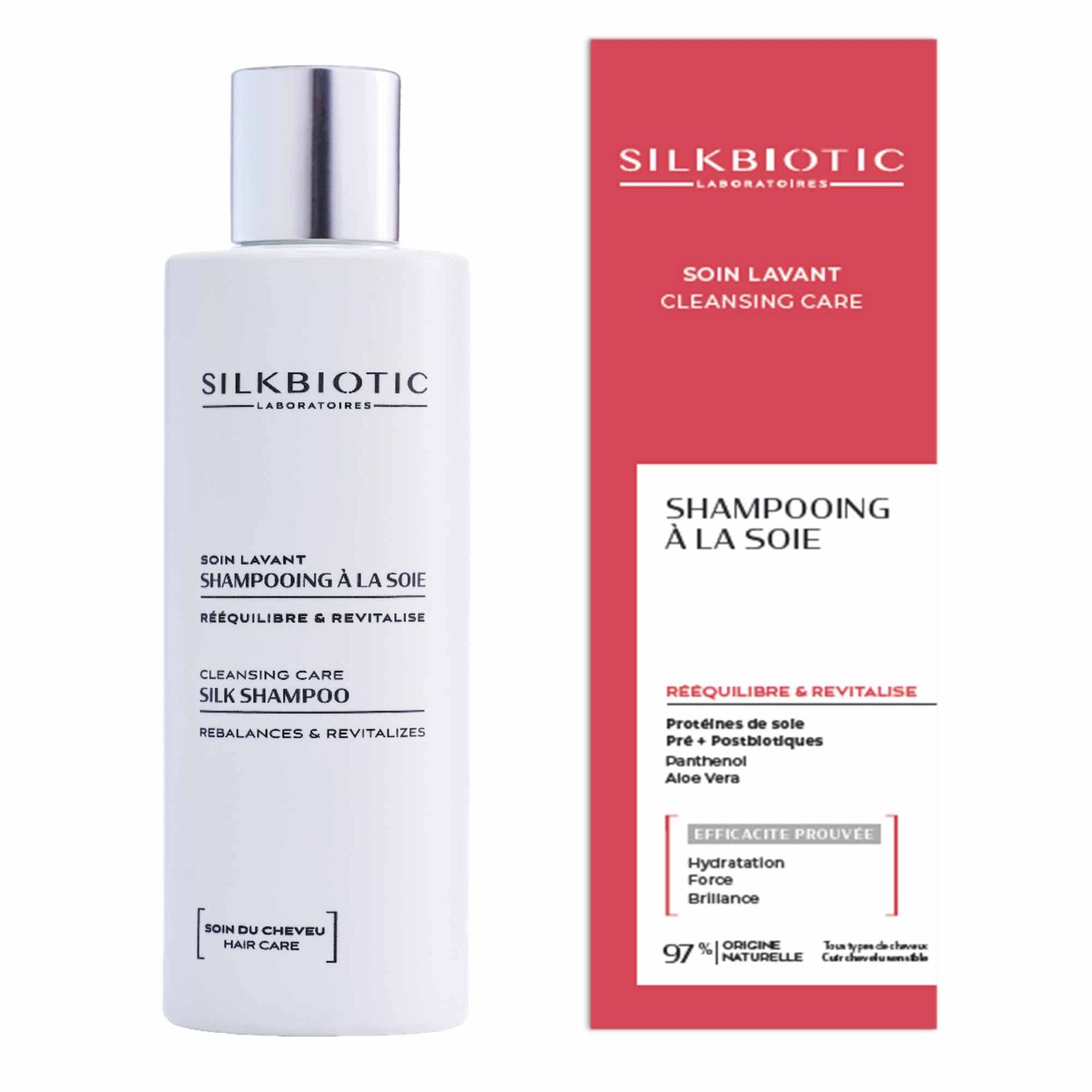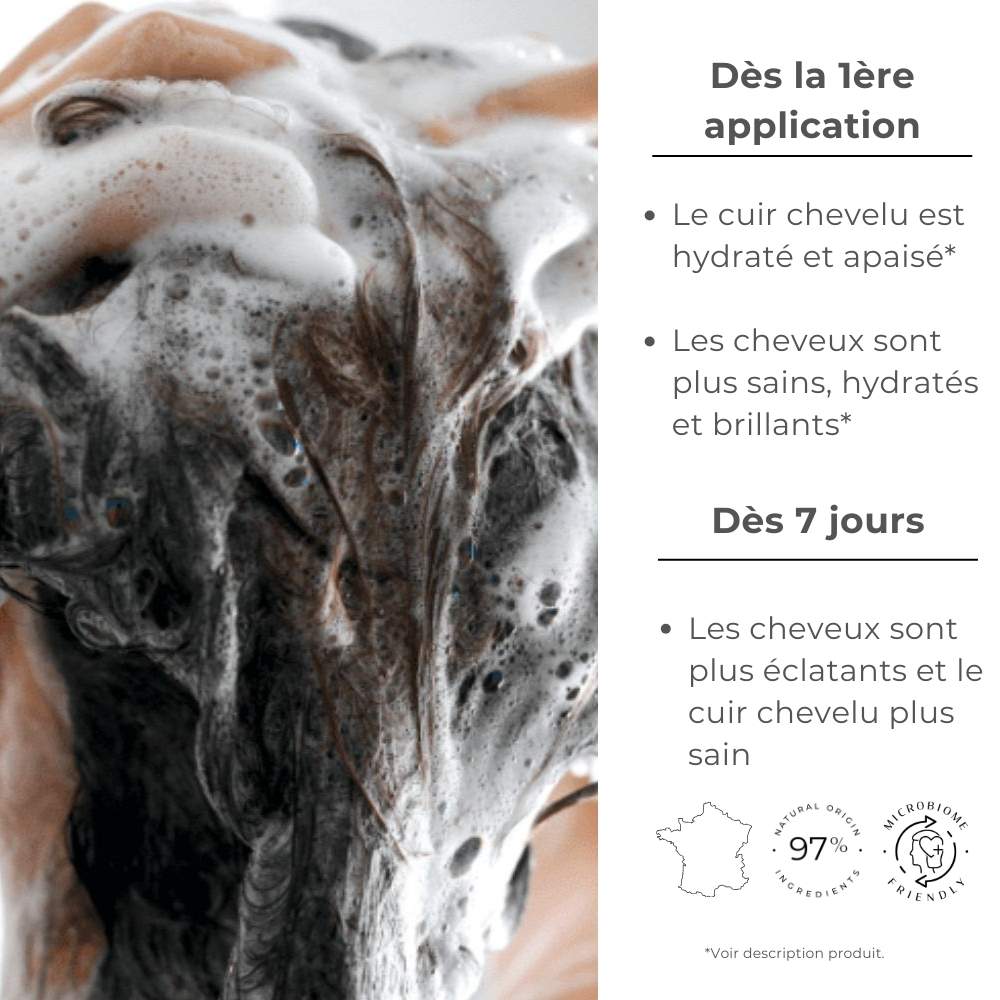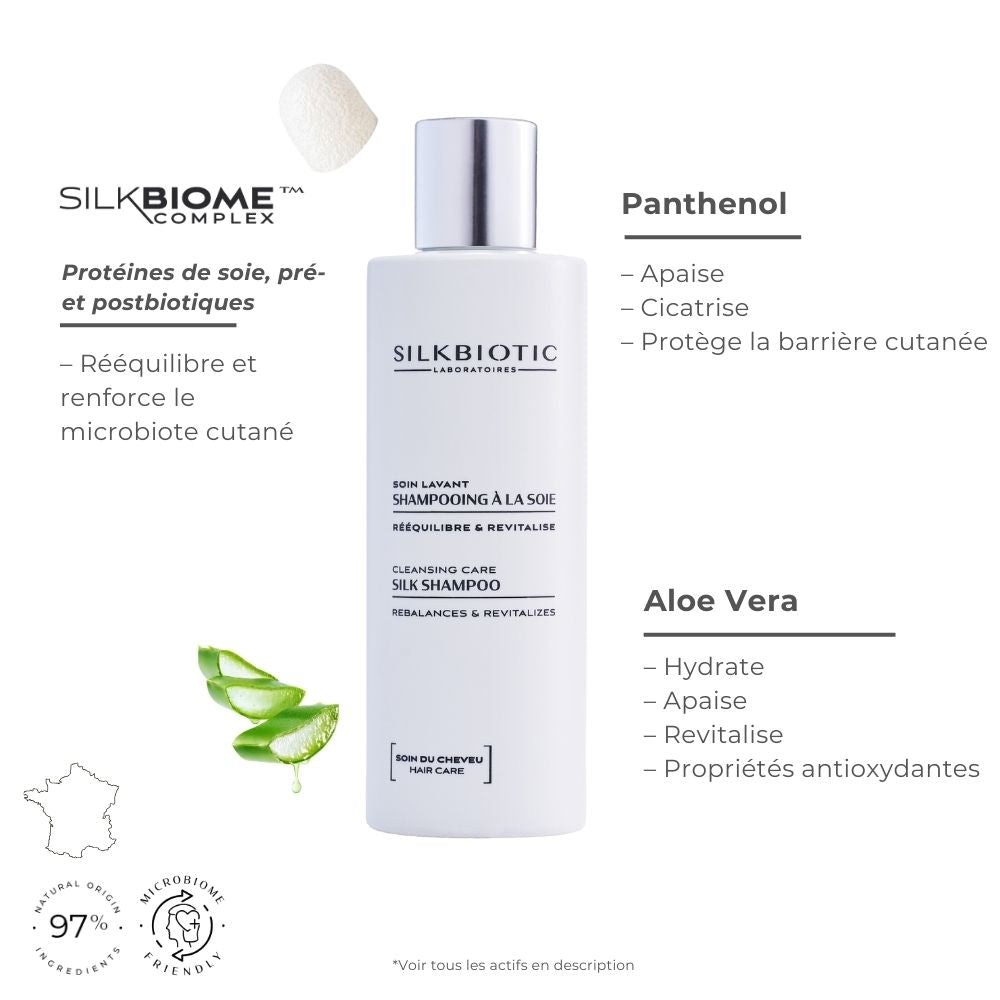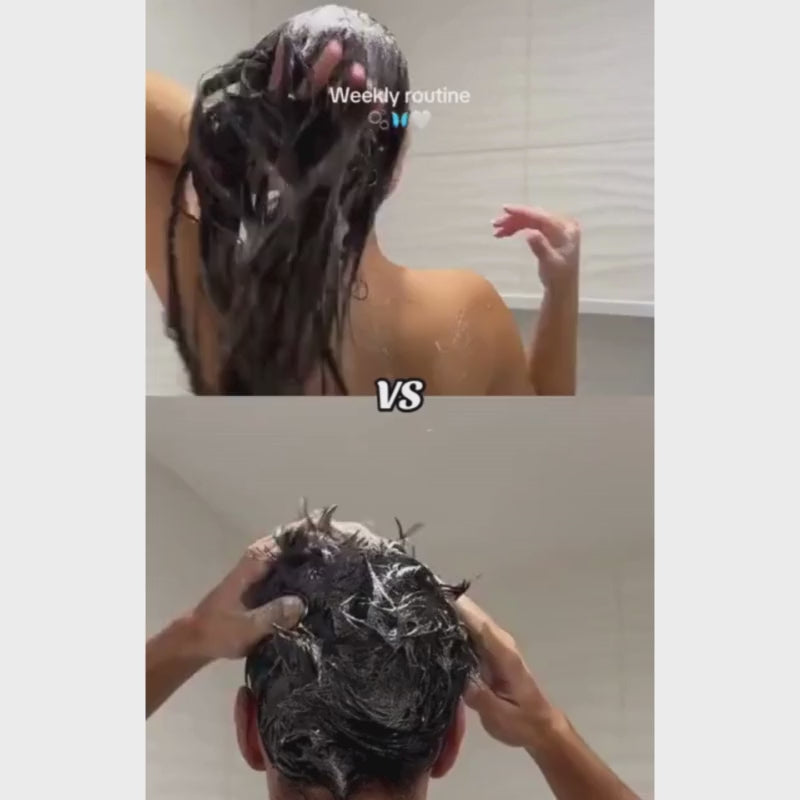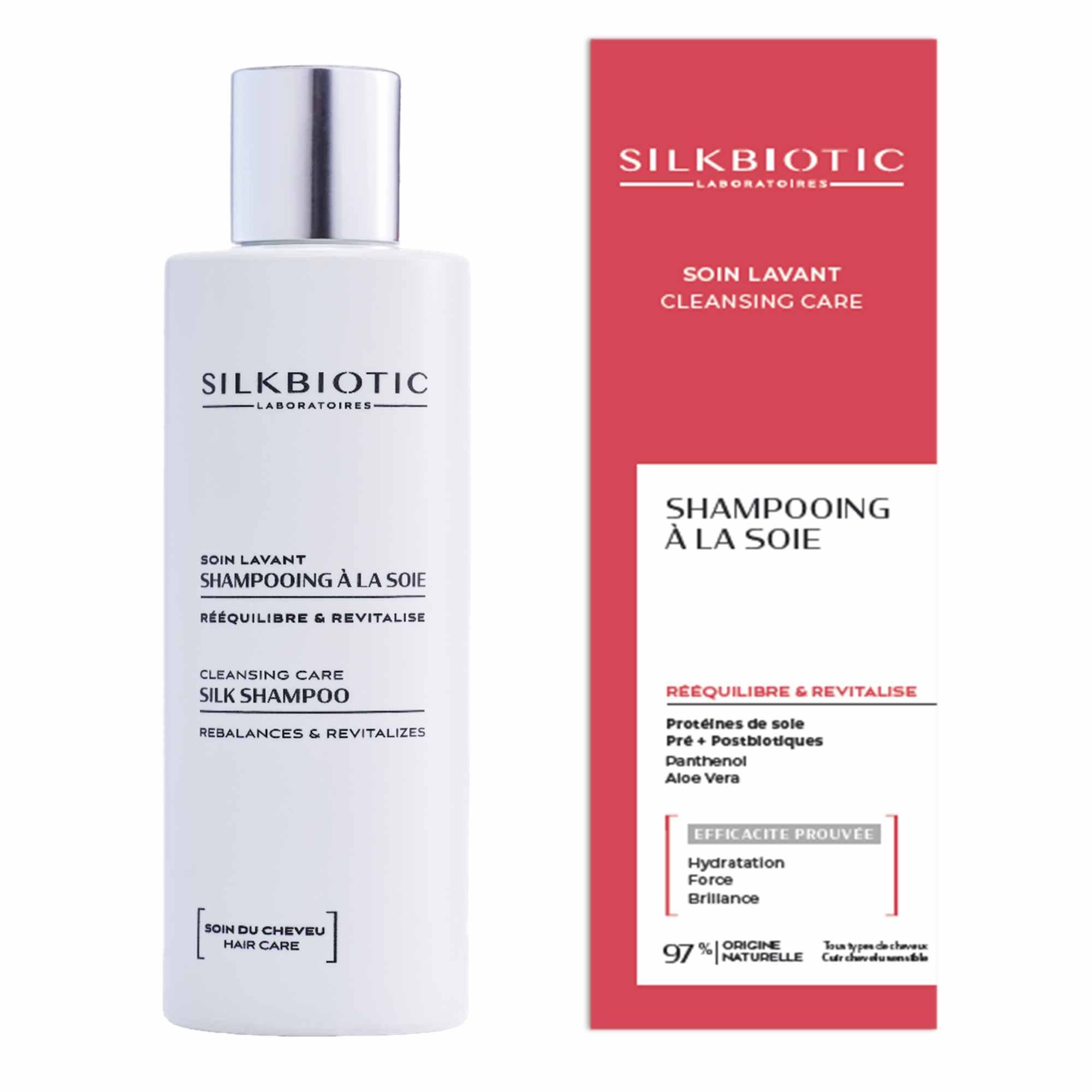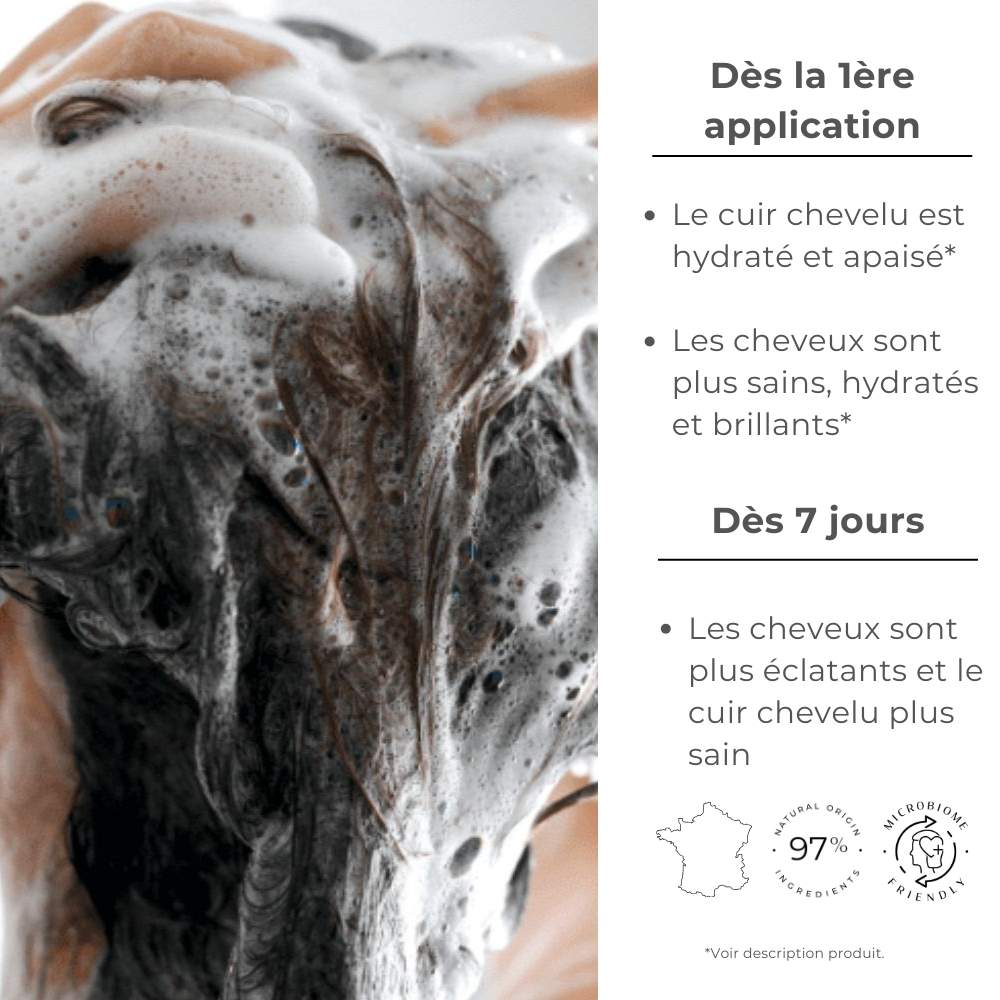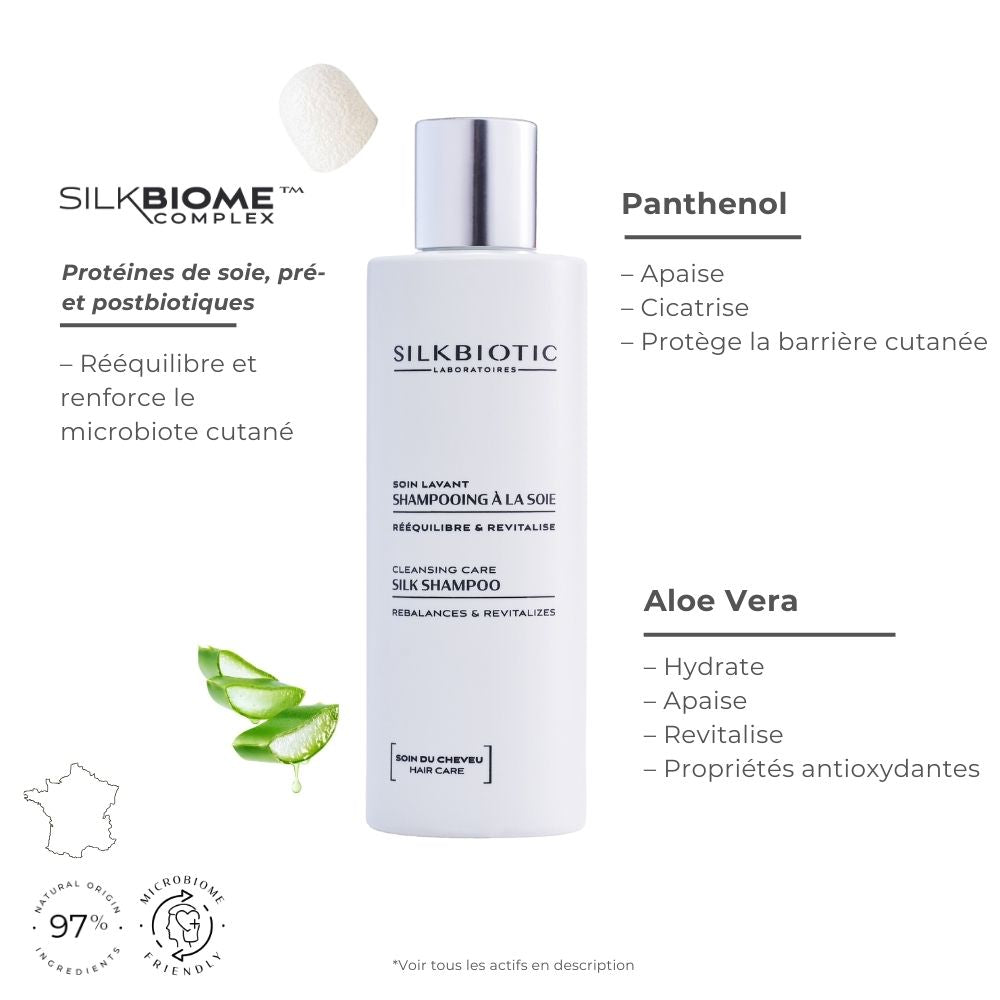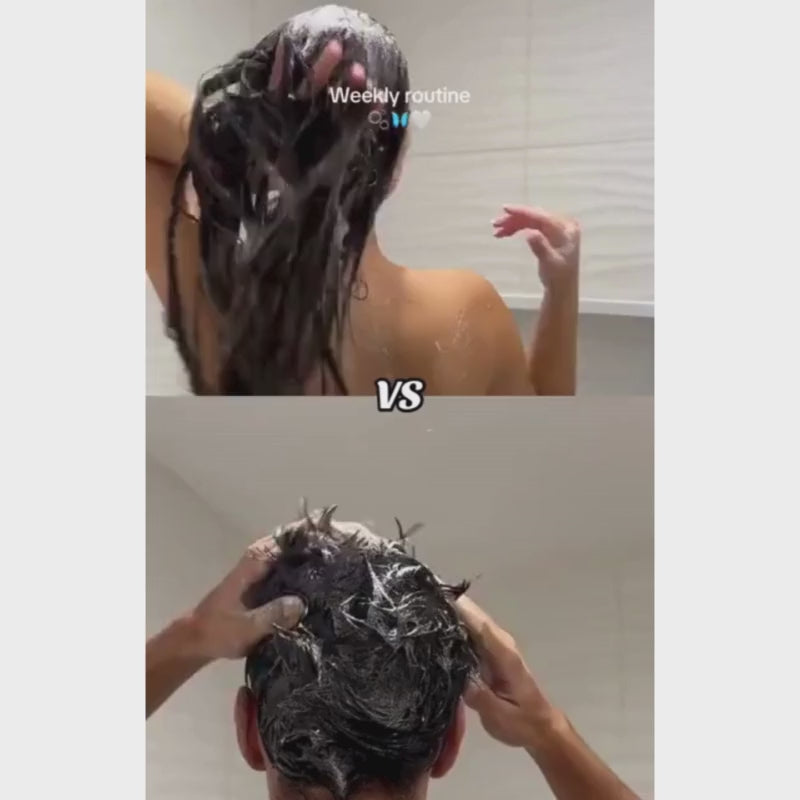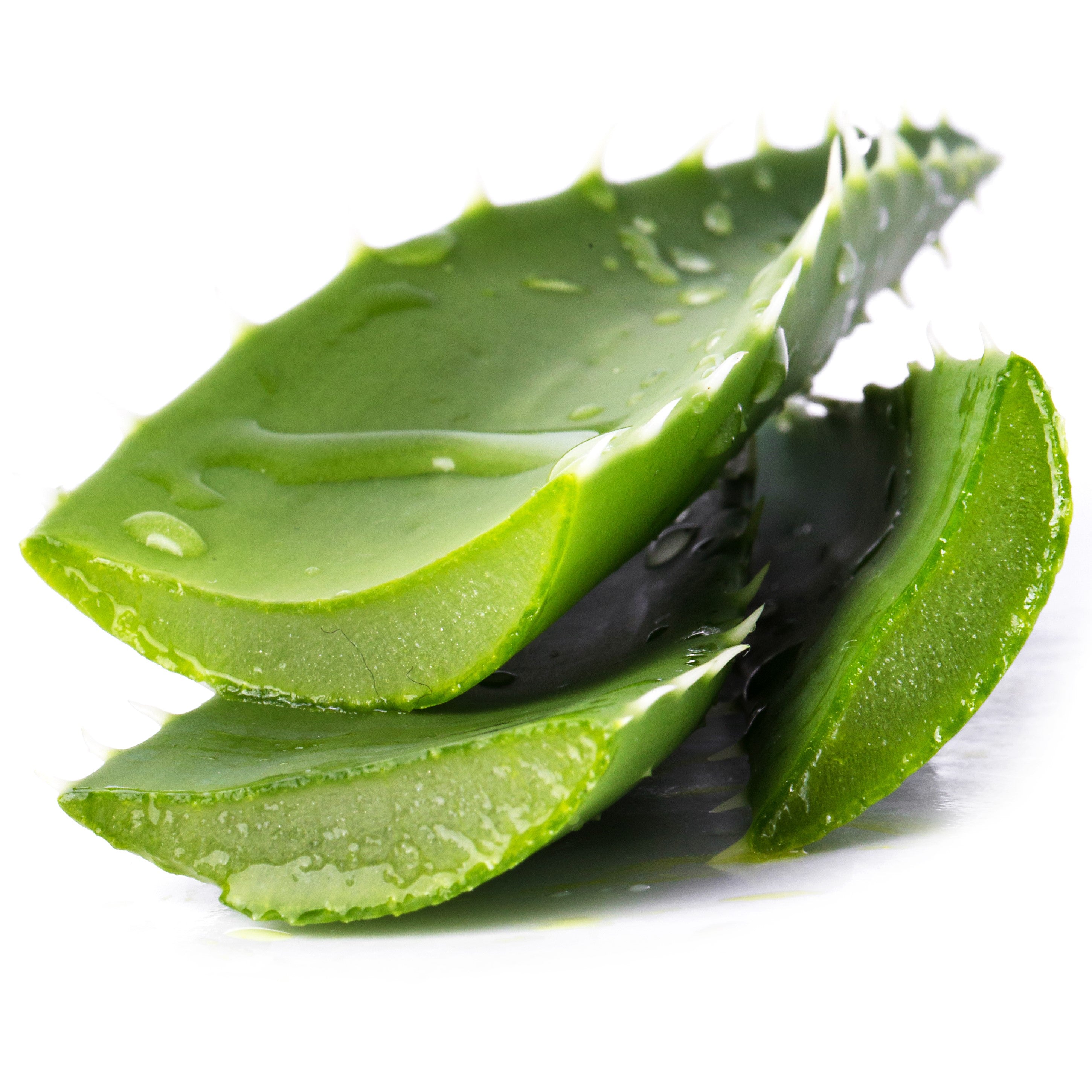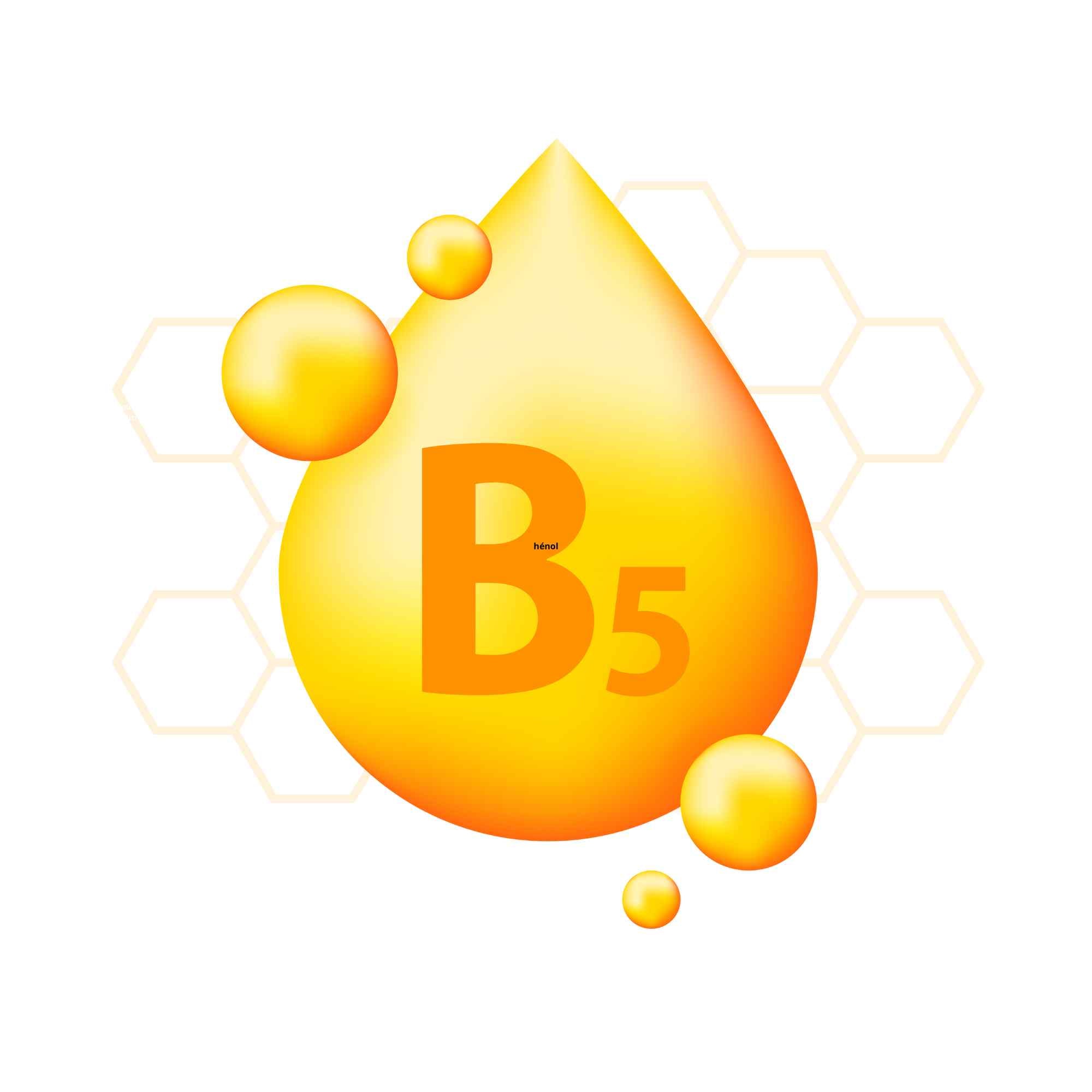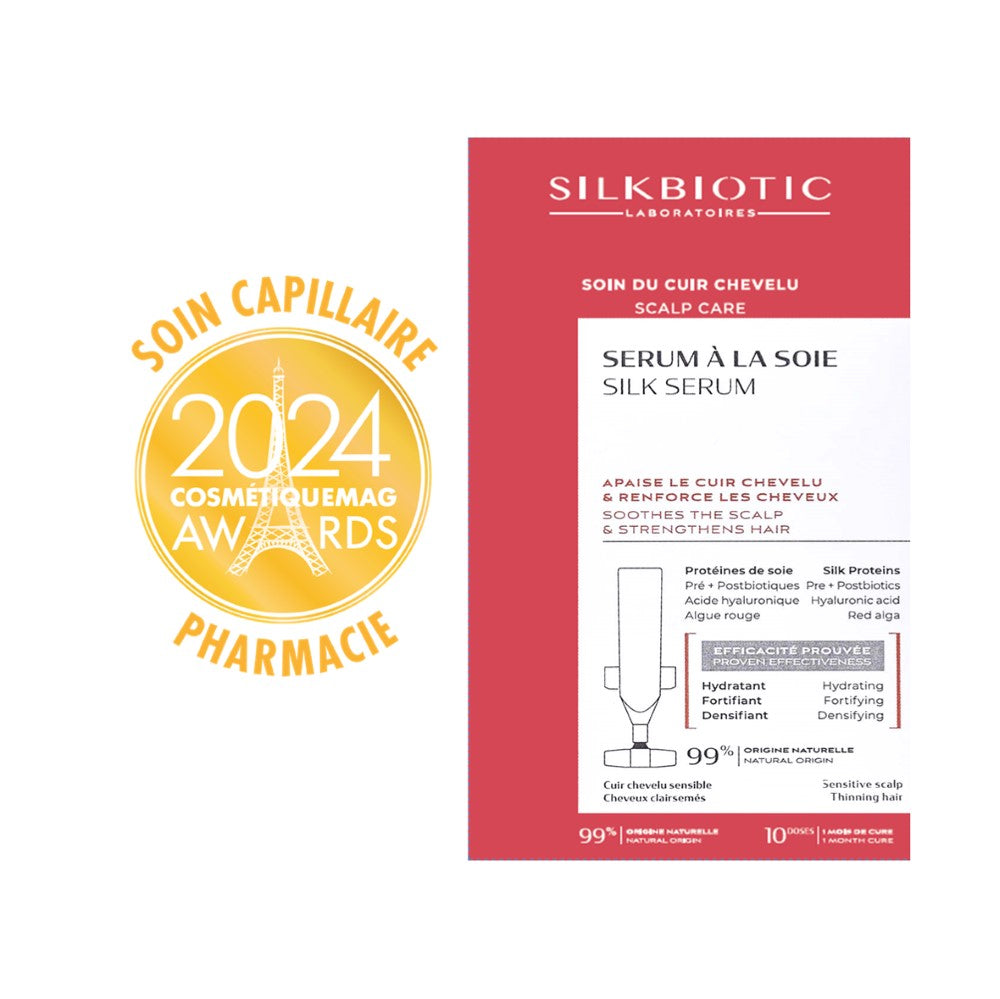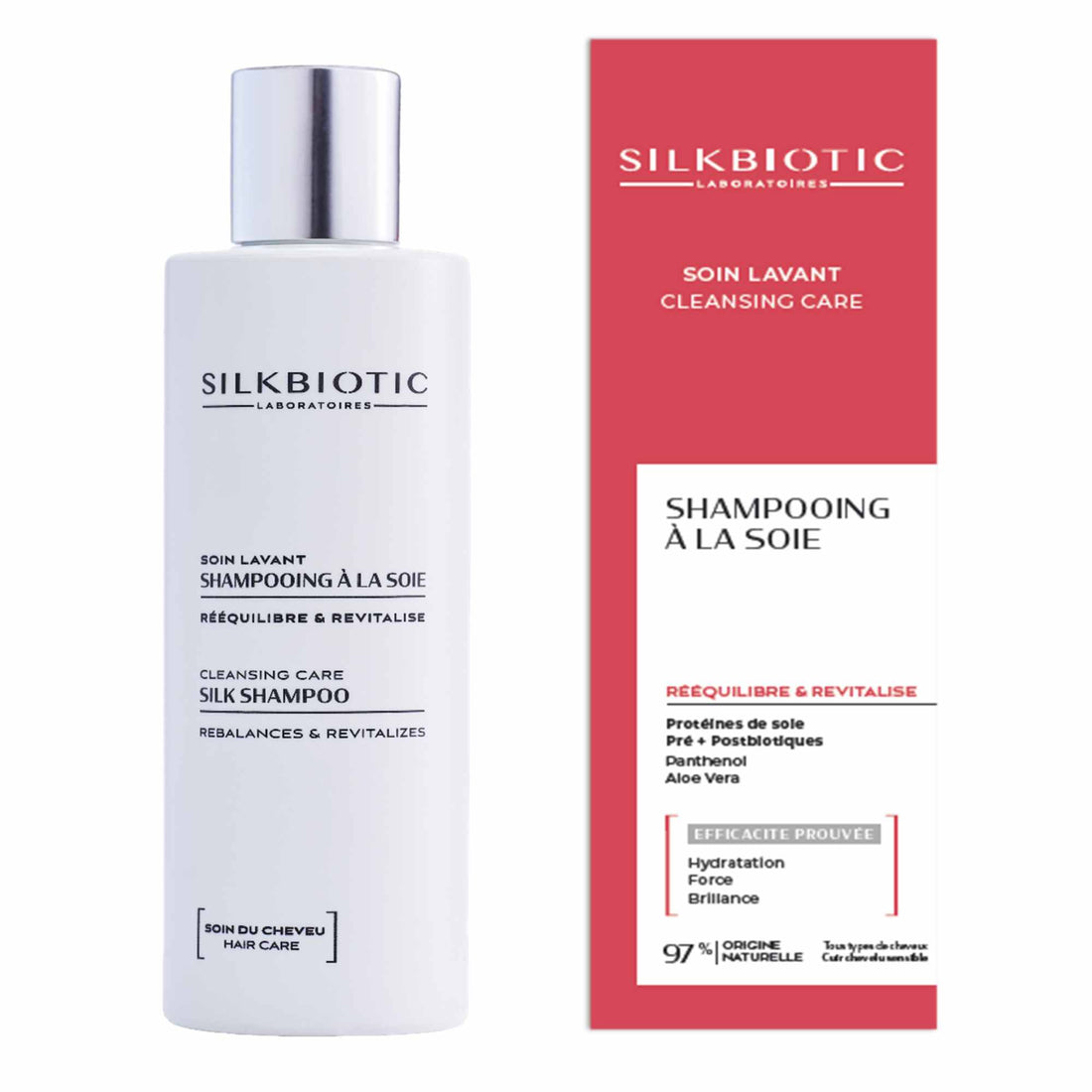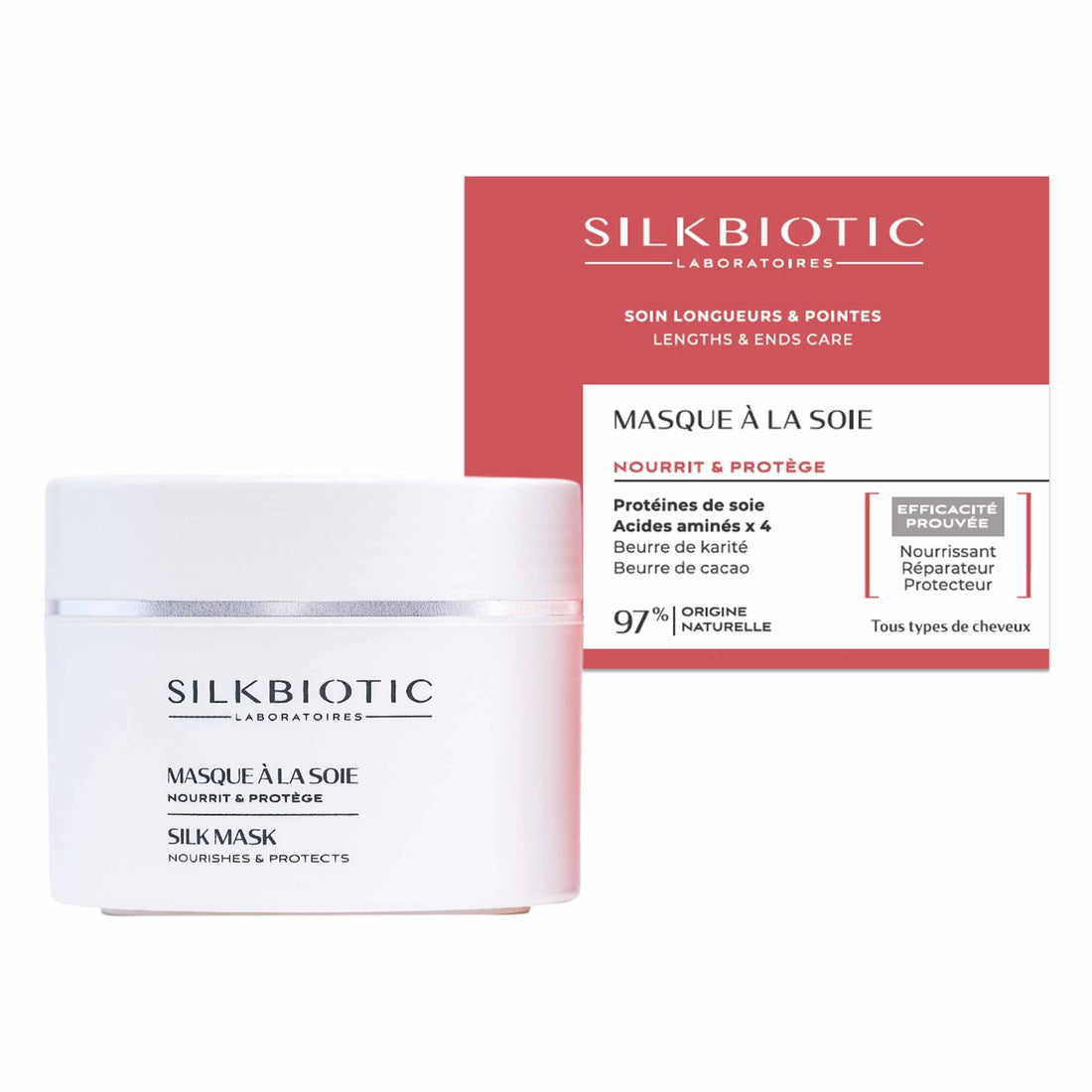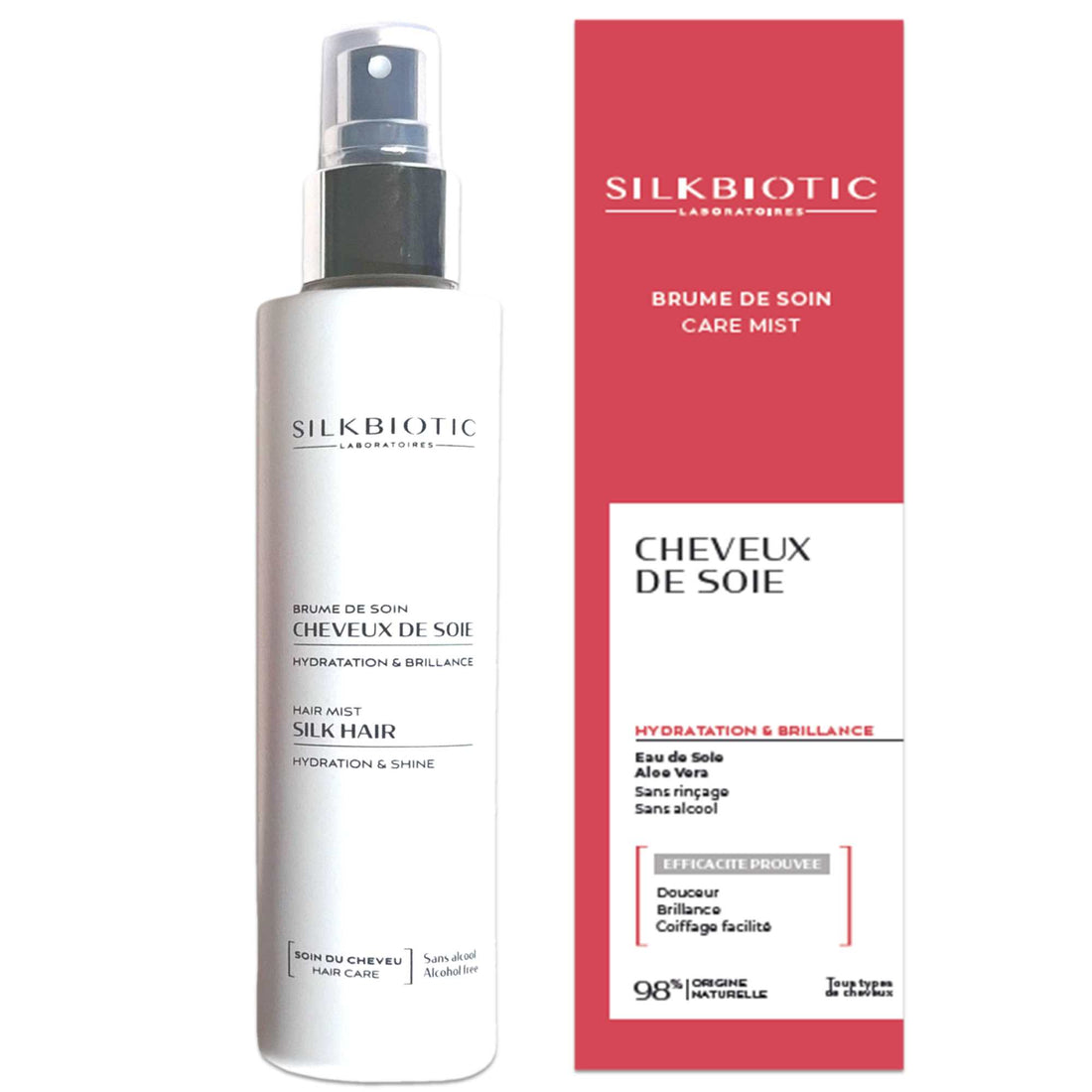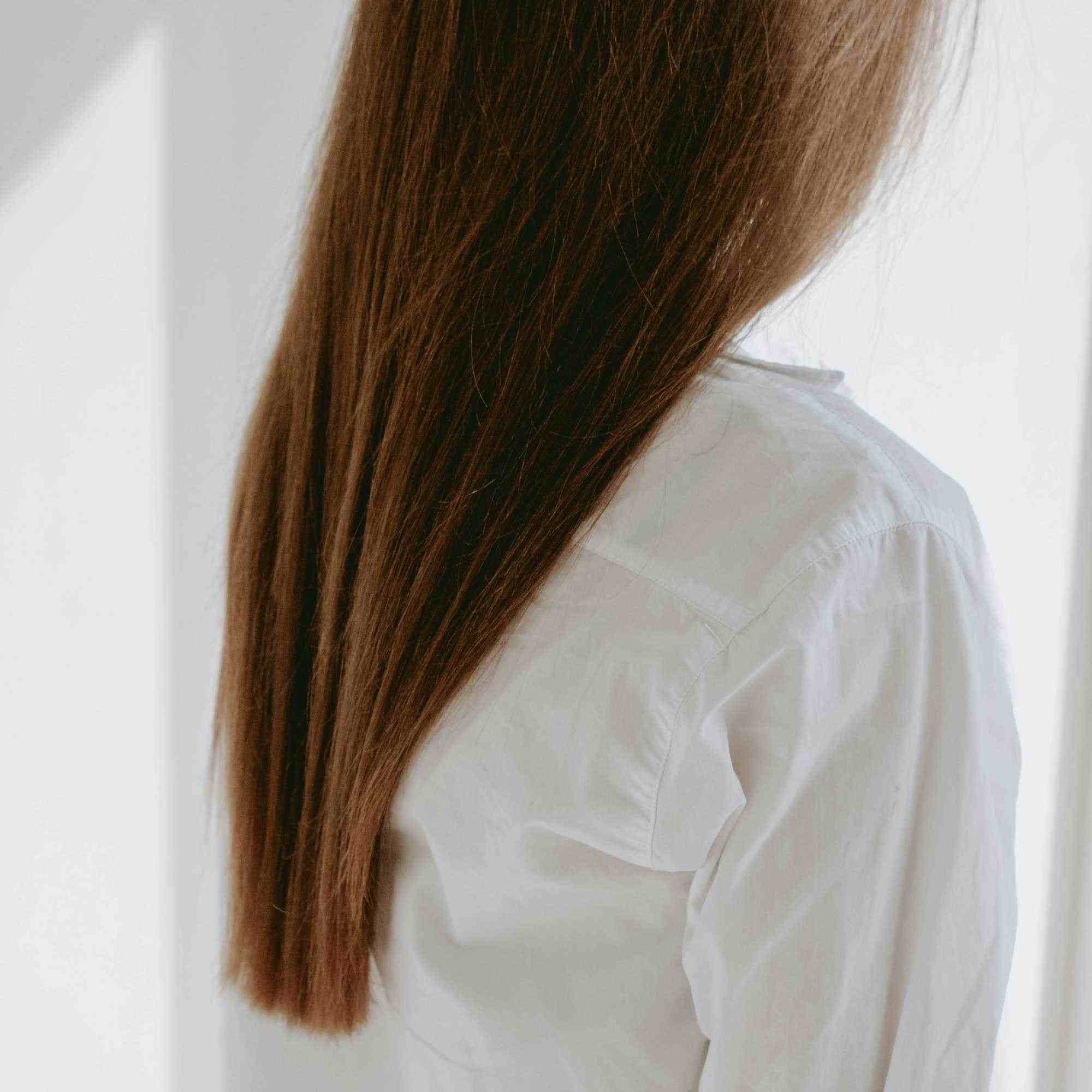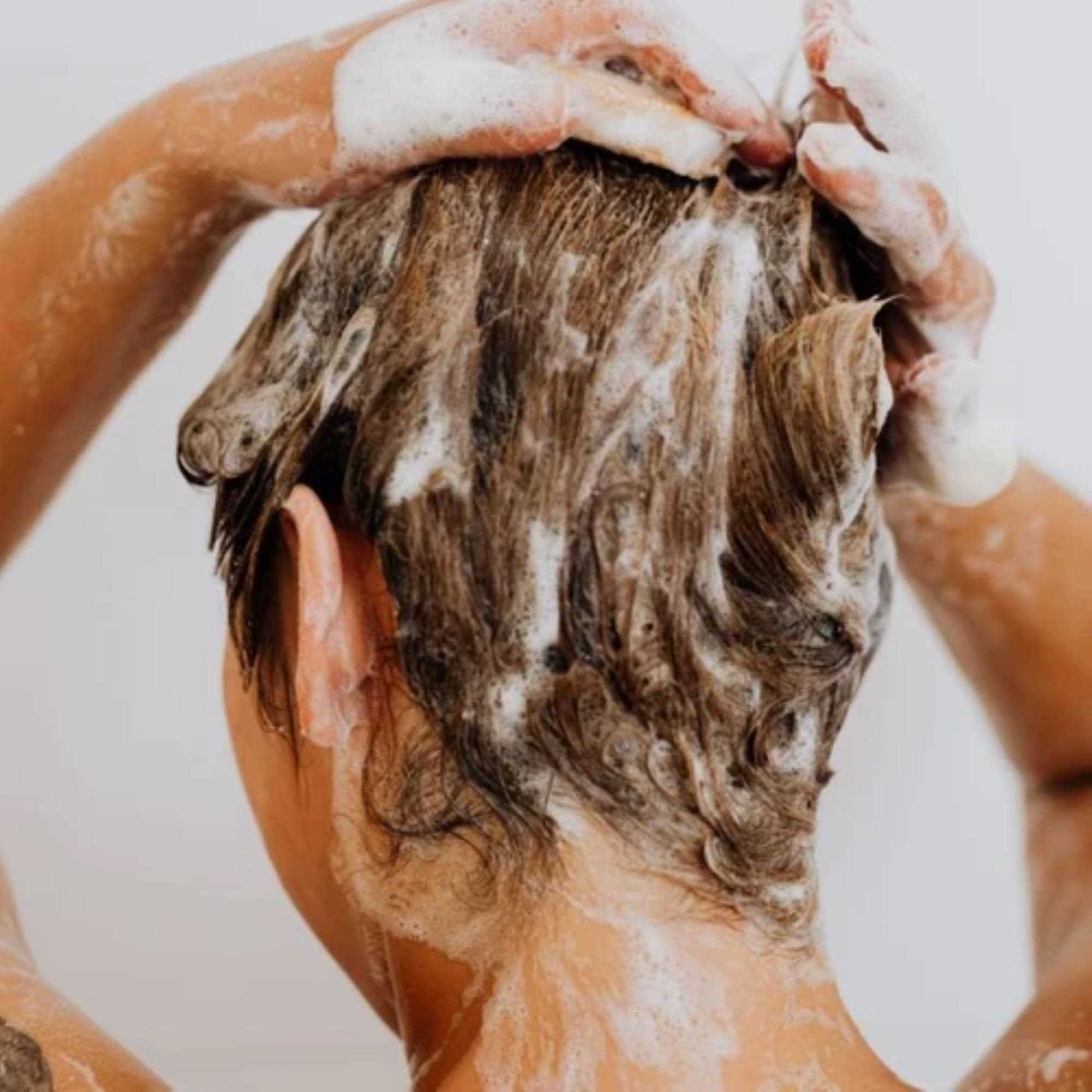Why choose a natural shampoo?
In a world that is increasingly aware of the impacts of chemicals on our health and the environment, choosing a natural shampoo has become an obvious choice. In France, consumers are becoming more concerned about the ingredients in their care products. Natural shampoos have become essential in our daily hair care routine. The scalp is at the heart of this concern, and choosing the right product can make all the difference.
Discover why natural shampoos are better for your scalp and hair. We will cover several topics: why scalp health depends on shampoo, why you should avoid sulfates in shampoos, and how silk can serve as an effective alternative to chemical shampoos.
Why pay attention to shampoo shoice?
Shampoos sold in supermarkets often contain controversial ingredients. Conventional shampoos commonly use sulfates and silicones for their foaming, cleansing, and smoothing properties, but this can have harmful effects on the health of your hair and scalp, both in the short and long term.
Disadvantages of supermarket shampoos
Irritations and allergies: Sulfates and parabens in conventional shampoos can cause skin irritation, itching, and allergic reactions.
Hair damage: Prolonged use can weaken the hair, lead to breakage, loss of shine, and split ends. This is particularly problematic for those seeking to preserve the softness of their hair.
Environmental impact: Non-biodegradable chemicals cause significant pollution, contributing to environmental degradation. Using natural shampoos helps reduce this environmental impact.
Sulfates and silicones in shampoos: Why some choose SULFATE-FREE and/or SILICONE-FREE products
What are sulfates in shampoos?
Cleansing effect: Sulfates, such as sodium lauryl sulfate (SLS), are powerful foaming agents that effectively degrease. However, they can also strip away the natural oils necessary for scalp and hair health, leading to excessive dryness and scalp irritation. Choosing a sulfate-free shampoo in France is becoming an increasingly popular choice.
What role do silicones play in shampoos?
Smoothing effect: Silicones, like dimethicone and cyclomethicone, create a coating on the hair, making it instantly smooth and shiny. However, this coating can accumulate, weighing the hair down and making it dull and greasy, while preventing nutrients from penetrating the hair. Over time, the hair can become dependent on these products to appear healthy, masking underlying issues like dryness and damage. Silicones can also reduce the natural volume of hair.
Why buy a natural shampoo?
Natural shampoos are cleansing products made primarily from natural ingredients. Unlike conventional shampoos, they do not contain sulfates, silicones, parabens, or other harsh chemicals that irritate the scalp and damage hair. Natural shampoos offer unparalleled softness with an ultra-gentle approach to cleanse the scalp without compromising its health. With natural ingredients, a natural shampoo takes care of your hair while maintaining the natural balance of your scalp.
The benefits of natural shampoos
Choosing a natural shampoo has numerous benefits for your hair:
- Scalp protection: Natural shampoos contain gentle ingredients that minimize the risk of irritation and allergies.
- Preservation of natural oils: Unlike sulfates, gentle cleansing agents do not strip the natural oils from the scalp, helping to maintain balanced hydration.
- Hair strengthening: Natural ingredients such as silk and keratin proteins can strengthen the hair fiber, reducing breakage and split ends.
- Environmental respect: Natural formulations are often biodegradable and non-toxic to the environment, contributing to a healthier planet. The packaging of these products is often recyclable, supporting sustainability. Companies offering natural cosmetics generally have a commitment to eco-responsibility.
How to know if a shampoo is natural?
Choosing a natural shampoo can sometimes be challenging, especially with the numerous products available on the market. Here are some tips to help you identify whether a shampoo is truly natural and beneficial for your hair and scalp.
-
Check the ingredient list
The first step in determining if a shampoo is natural is to carefully examine the ingredient list. Look for natural ingredients such as plant extracts and gentle, plant-based cleansing agents. Avoid harsh chemical ingredients such as sulfates (SLS, SLES), parabens, and silicones. Natural hair care products often use softer, skin- and environmentally-friendly alternatives. -
Look for active natural ingredients
A good natural shampoo contains active ingredients that benefit the hair and scalp. For example, aloe vera, jojoba oil, argan oil, and silk proteins are often used for their moisturizing and nourishing properties. These active ingredients help strengthen the hair and maintain a healthy scalp. -
Read reviews and testimonials
Customer reviews and testimonials can give you a good idea of the effectiveness of a natural shampoo. Look for feedback mentioning improvements in terms of softness, shine, and overall health of the hair and scalp. Natural hair care products are often praised for their gentleness and ability to improve the texture and appearance of hair.
Silk as a natural alternative to chemicals
An exceptional natural ingredient to consider is silk, particularly silk fibroin, extracted from the cocoon of the Bombyx mori. Silk fibroin is non-toxic, biocompatible, and has remarkable effects on the health of the scalp and hair.
Scientific studies have shown that silk proteins can not only improve the appearance and texture of hair but also provide an effective alternative to the chemical agents used in industrial shampoos. Additionally, it maintains the silky shape of hair curls. Silk proteins strengthen hair and improve its elasticity, reducing breakage and enhancing shine and vitality (Tinoco et al., 2021). These properties make silk a key ingredient for all hair types.
SILKBIOTIC silk shampoo
SILKBIOTIC Silk Shampoo replaces the effects of silicones with a natural ingredient: silk. It is also this material that gives the velvety, creamy texture to the cleansing product. Additionally, SILKBIOTIC Silk Shampoo is made with 97% natural ingredients.
Formulated to effectively remove impurities and styling product residues, this cleansing treatment leaves the hair perfectly clean. Thanks to its formula rich in natural moisturizing agents, it provides optimal hydration to the hair, leaving it soft and shiny. It helps strengthen the hair fiber, reducing breakage and split ends. Its biomimetic amino acids, along with pre and post-biotics (SILKBIOME COMPLEX, patented), help restore the delicate balance of the scalp’s microbiome. Natural plant extracts, like organic aloe vera, soothe and nourish the scalp, promoting a healthy environment for hair growth. Free of sulfates, parabens, and silicones, it respects the delicate nature of the scalp and hair. This treatment is ideal for all hair types. The subtle, natural fragrance of this shampoo offers a pleasant sensory experience.
Consumers in France particularly appreciate the softness and effectiveness of this product.
From the first use:* 100% of users reported having a hydrated scalp and a soothing sensation. 100% of users found their hair healthier. 96% of users said their hair was hydrated and shinier. 88% of users claimed their hair was visibly stronger.
Using recyclable products in France is an important environmental gesture. That’s why the packaging of our products is also recyclable, reinforcing our commitment to low environmental impact.
Switching to a natural shampoo is a wise choice for anyone looking to take care of their hair in a healthy and eco-friendly way. By avoiding sulfates and silicones, you can protect your hair from long-term damage and maintain healthy, shiny locks. The gentleness of your hair care routine will benefit greatly. Furthermore, you contribute to protecting the environment by opting for biodegradable, non-toxic formulations. Natural hair care products help preserve all hair types, especially curls and dry hair. By incorporating natural ingredients like silk, you can achieve optimal hair performance without compromising your hair’s health or that of the planet.
Ready to make the change? Discover our natural silk shampoo for healthy, shiny hair. Choosing a natural shampoo is essential to caring for your scalp and hair in a natural and respectful way. By selecting products made with natural ingredients, you provide your hair with a true hair care treatment. Discover the SILKBIOTIC Silk Shampoo for healthy, shiny hair, and adopt a hair care routine that brings you softness and shine. Adopt a hair care routine that respects both your well-being and the environment!


